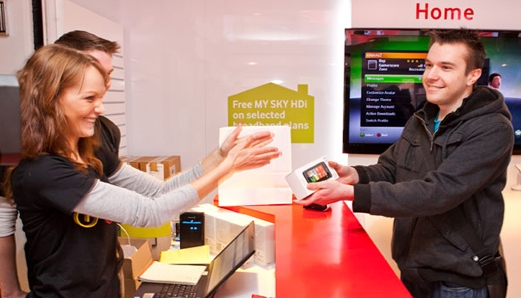Windows Phone 7 Launch: No Queues, Faint Praise

No queues for devices running Microsoft’s Windows Phone 7, and big reviewers were lukewarm
Microsoft Windows Phone 7 devices reached the shops today, except in the US, but there were no queues and the new operating system got lukewarm reviews from big league pundits.
Microsoft desperately needs Windows Phone 7 to succeed, as the five percent share its current, generally disliked, Windows Mobile 6.5 operating system has in the smartphone market is eroding rapidly in the face of innovation from Apple, Android and RIM’s BlackBerry.
However, while most reviews (including eWEEK Europe’s Windows Phone 7 review) liked the operating system, the big-name commentators failed to get excited, and the shops selling the phones were unable to generate the same excitement that greeted the launch of the iPhone 4 in June. Although Apple-lover Stephen Fry welcomed the OS, he has not been reported at any of the launch parties.
Not much excitement over Windows Phone 7
 The first person in the world to buy one was Jourdan Templeton, a student at the Waikato University of Technology in New Zealand, who got an HTC Trophy 7. Microsoft published his photo, and that of other New Zealanders queuing for a phone, but elsewhere, the event was notable for the lack of queues, compared with the bustle of the iPhone 4 launch earlier this year.
The first person in the world to buy one was Jourdan Templeton, a student at the Waikato University of Technology in New Zealand, who got an HTC Trophy 7. Microsoft published his photo, and that of other New Zealanders queuing for a phone, but elsewhere, the event was notable for the lack of queues, compared with the bustle of the iPhone 4 launch earlier this year.
In London, although Microsoft bought a wrap-around advert on the free Metro newspaper, very few people turned up at shops which opened early. The Orange shop had staff on hand to deal with crowds, but only had two outside when the doors opened at 7am, according to Pocket Lint.
Many reviews were positive – perhaps simply by comparison with the previous operating system, Windows Mobile 6.5, but critics such as the Wall Street Journal‘s Walter Mossberg said it does nothing that can’t be done on other platforms.
“I couldn’t find a killer innovation that would be likely to make iPhone or Android users envious, except possibly for dedicated Xbox users,” said Mossberg, after testing the Samsung Focus and HTC HD7. “Even the built-in Office can be replicated with third-party Office-compatible apps on competing platforms; and the iPhone and Android phones also can interoperate with Microsoft’s corporate Exchange email, calendar and contact system.”
Inferior to iPhone and Android
Mossberg sees the OS as “getting Microsoft into the game, and replacing the stale, complicated Windows Mobile system that preceded it,” adding that it is “inferior to iPhone and Android for most average users. It’s simply not fully baked yet.” In June, Mossberg gave the iPhone 4 an enthusiastic review, although the antenna problems which have plagued the phone emerged later.
Likewise, Engadget said “there’s a lot to like or even love in WP7. Microsoft has done an outstanding job with lots of aspects of this UI, particularly when it comes to navigation and ease of use – but there are holes here as well. It still feels like the company is a good year behind market leaders right now.”
Could there be too many phones?
One reason for the lack of excitement in the shops, ironically, could be Microsoft’s sterling efforts to make sure there is a plentiful supply of the phones. For its June launch, Apple provided only one iPhone 4 model, let it be known there was a limited supply, and signed exclusive deals with operators – with O2 in the UK.
By contrast, Microsoft had six devices to launch in the UK, and made sure that all five major mobile operators had a device – so potential customers would have plenty of choices of places to queue.
HTC is fielding three devices. The HTC HD7, with a large 4.3 inch screen, is exclusive to O2 and costs £379 or free on a £40 per month contract. It has a monster 4.3-inch screen, so if you want to go big, this is the one for you.The HTC Mozart, exclusive to Orange, has a better-than average 8 Megapixel camera with xenon flash, and a smaller 3.7 inch screen – it’s on a £35 contract. The HTC Trophy looks like being the cheapest Windows Phone 7 device, at £25 per month from Vodafone, which has an exclusive on it.
T-Mobile, 3 and Orange all have Samsung’s Omnia at £40 per month, and LG has the Optimus 7, also known as the E900, which is the phone we have, for our review of Windows Phone 7 .
The sixth phone avialable in the UK is Dell’s Venue Pro, equipped with a keyboard, aimed at business users which will be available online sometime before Christmas.